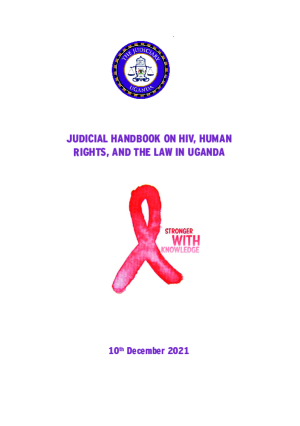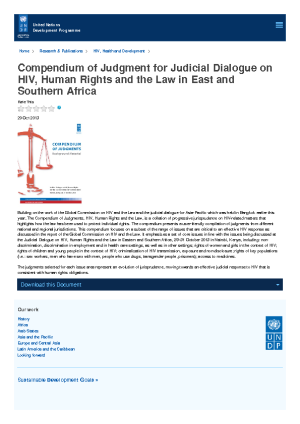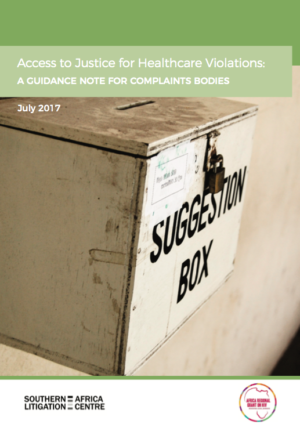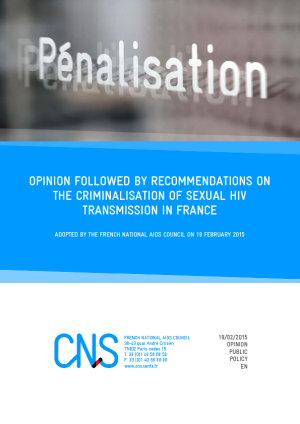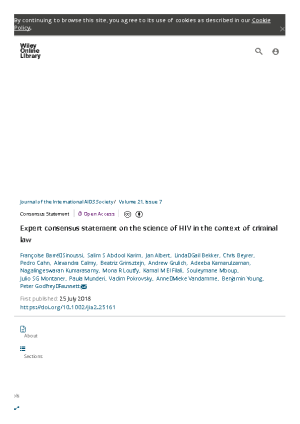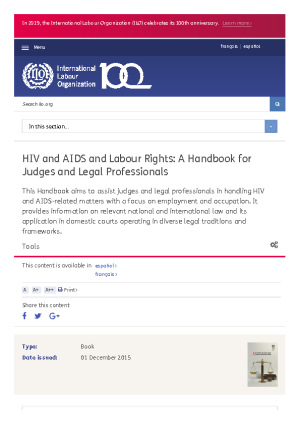The Judicial Handbook on HIV, Human Rights and the Law in Uganda comprises of five parts that address the issues relating to HIV/AIDS and raises pertinent issues relating to its existence as may affect Judges’ decisions as well as possible recommendations for a start. Specifically, it has a background in which the current status of the HIV/AIDS epidemic and response to it is included.
- Part I enunciates the International Law and Human Rights Frameworks as applicable to HIV/AIDS in Uganda
- Part II concentrates on the National Law and Human Rights Frameworks as applicable to HIV in Uganda.
- Part III is about gaps/issues/shortfalls in national law and human rights frameworks as applicable to HIV and discusses policies on HIV.
- Part IV pertains to criminalization of transmission of HIV and its adverse effects.
- Part V is about things to remember when judging and adjudicating HIV cases, what the disposition of a judicial officer should be as well as the role of a judicial officer in the courtroom whilst handling such cases.
